Volleyball is an excellent, full-body workout with health and mental benefits felt by its players. With so many players worldwide, the chances of some needing mouth braces during their lifetime of playing volleyball are high.
According to the Canadian Association of Orthodontists, 4 million people in Canada and the United States are under an orthodontist’s care. With so many people in orthodontics’ treatment, it makes sense some volleyball players will inquire if they can still play with braces. The answer from orthodontists across North America is a resounding “yes.”
By following some simple steps, playing volleyball with braces is nothing to fret over. We will explore mouthguards and the many questions surrounding sports and braces, so you can worry about one thing: playing volleyball.
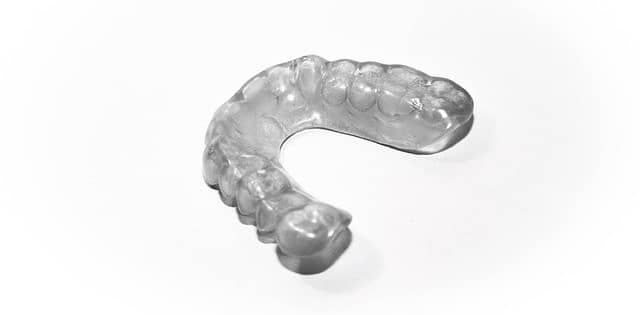
Mouthguards
Sports and injuries are as unavoidable as life and breathing. In other words, as hard as we try, the two are linked. Fortunately, we have preventative measures limiting the amount of dental damage done by mouth injuries.
Even without braces, dentists recommend mouthguards for a plethora of sports, volleyball included. While there is a risk of physical injury in sports like football, other sports still carry a risk of collision. In volleyball, a ball to the face could equate to dental injury the same as an accidental collision with a teammate.
Typical mouthguards involve boiling or molding the mouthguard once for a tight and perfect fit for your teeth. The trouble with these mouthguards is your teeth are supposed to be changing where they sit in your mouth. In turn, your perfectly fitted mouthguard may hinder your teeth straightening process.
Mouthguards for braces
With braces, protecting your mouth is a financial endeavor and one that saves your gums from cuts associated with your appliance. Finding a mouthguard that works with braces is a worthwhile investment for volleyball players sporting the shiny silver.
Shock Doctor Braces Mouth Guard
Shock Doctor is repeatedly touted as a front runner for mouthguards for braces wearers. The guard is 100% medical grade silicone, providing comfort and instant adaptation to the mouth’s changes. No boiling is required. The strapped version allows for instant release. Shock Doctor’s Mouth Guard is latex, BPA, and Phthalate Free for those with allergic reactions and comes with a warranty, giving peace of mind when investing in the mouthguard. The mouthguard is available in youth and adult sizes, both strapped and unstrapped.
OPRO Gold Mouthguard for Braces
One time molding mouth guards simply cannot work for people with braces. OPRO developed a mouth guard specifically for braces, allowing the ability to remold as needed. The mouthguard’s fins enable the braces to be protected while you play and includes shock-absorbent protection. They “put their money where their mouth is” with a dental warranty should the mouthguard not protect your teeth.
Nxtrnd Braces Mouth Guard Sports
The Nxtrnd Braces Mouth Guard Sports fits around the brackets and wires of your appliance without the need to mold. Made of silicone, the guard is designed to be a one size fits all approach, allowing room for your teeth to shift. Some reviewers share the mouthguard is a bit tight, so if you have a broader smile, this may not be the mouthguard for you. Nxtrnd’s warranty covers only the mouthguard and the protective case.
Denta-Gard®’s Kid’s Comfort PRO™
This mouthguard does not require any boiling or molding. The latex and BPA free guard merely requires you to pop it in your mouth. Because the guard can be worn with braces and without, Denta-Gard’s Comfort Pro provides an option that continues after removing your braces. The guard folds to enter your mouth, giving protection for the top and bottom teeth while allowing ease for speaking and breathing. There is a $7500 dental warranty. With a plethora of color options, you can customize to fit in with your team’s colors.
Game On Mouthguards
Game On utilizes a Vistamaxx technology, allowing the mouthguard to have a smaller profile. This material change gives the athlete a better ability to speak and drink while wearing the guard. The guard is specifically created to mold to the mouth with or without braces and can be remolded after every adjustment. The mouthguard is dishwasher safe, customizable with words and colors, and is approved by the American Dental Association. Purchase two mouthguards and customize the fit for the top and bottom teeth for more thorough protection.
When should I wear a mouthguard?
With sports, anytime you are actively practicing or playing, and there is a risk of collision or injury, you should wear a mouthguard. Many players will only wear mouthguards during competition, but the truth is an injury can occur at any time.
Because of the risks of virus transmission, it is best to put the mouthguard in before play and take it out after having a chance to wash your hands. Taking it in and out every time you come off the field increases the opportunity for viruses or bacteria to enter your mouth.
How to clean your mouthguard
Even if a mouthguard’s directions say it is acceptable to lay in its case in the bottom of your locker, would you want to put it in your mouth after doing so? The most hygienic option is to take the time to clean your mouthguard after every use and store it in a dry, germ-free place. Some mouthguards are dishwasher safe, but others require the old-fashioned method of using toothpaste and a toothbrush to scrub the inside and out after each use. You can even finish it off with a rinse of antimicrobial solution.
For a deep clean, an overnight soak in a denture cleaning solution will do the trick. Make sure to always rinse off your mouthguard after use, at a minimum, until you can get to a place to clean your mouthguard thoroughly. Keeping it stored in a case when not in use is the best way to protect it not just from germs but accidentally breaking it.
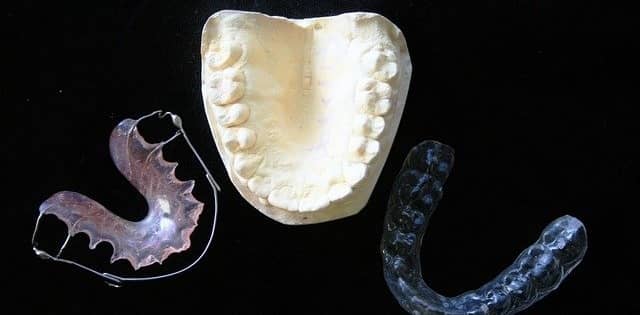
I just got braces. Can I still play volleyball?
This is a great question. Immediately after getting braces, your mouth will likely be sore for a few days. Most people will want to lay low for a day after getting their braces to adjust to the soreness.
Ask your orthodontist about his or her opinion on playing immediately after your appliance is attached. Depending on the extent and particulars of your treatment plan, they may want you to take a few days, or they may say you can return right away with a mouthguard and some anti-inflammatory medication.
I don’t want to wear a mouthguard
You are not alone in feeling frustrated by not wanting to wear a mouthguard during sports, but you want to consider what can happen when you do not wear one. An accidental hit to the mouth can easily break a tooth or bracket, cut into your gums, or even lose teeth. When this happens, the next step is an immediate visit to the orthodontist or emergency room, with the matching medical bills.
If you do happen to forget your mouthguard and get hurt, assess the damage right away. Are you cut, or did you lose a tooth? If so, pack up and hurry to the doctor or orthodontist.
On the other hand, you could use a mouthguard for the few months or years you have braces and protect yourself from dental injuries.
Focus on the game
It is easy to get caught up in how a mouthguard feels or looks, especially if you have played the sport for a while without one. Rest assured, you are not the first nor the last player who will wear a mouthguard. Some sports require mouthguards for all players.
What matters the most is where your mind is during the game. If you are concerned that every move from your teammates could result in a hand to the mouth, you will be distracted from playing your best anyways. Same if your mind is more concerned that the spiked ball may hit your teeth versus how best to return the ball.
To play your best and uphold your end of the game for your teammates, the easiest and most economical thing you can do is wear a mouthguard. Not only will your mind stay where it should be, which is playing the game, you will also prevent thousands of dollars of dental repair with a much cheaper mouthguard.
So pop the silicone miracle worker in your mouth, pull up your knee pads, and get out there and play your game. Leave the teeth worries to your orthodontist.
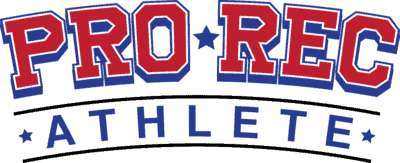
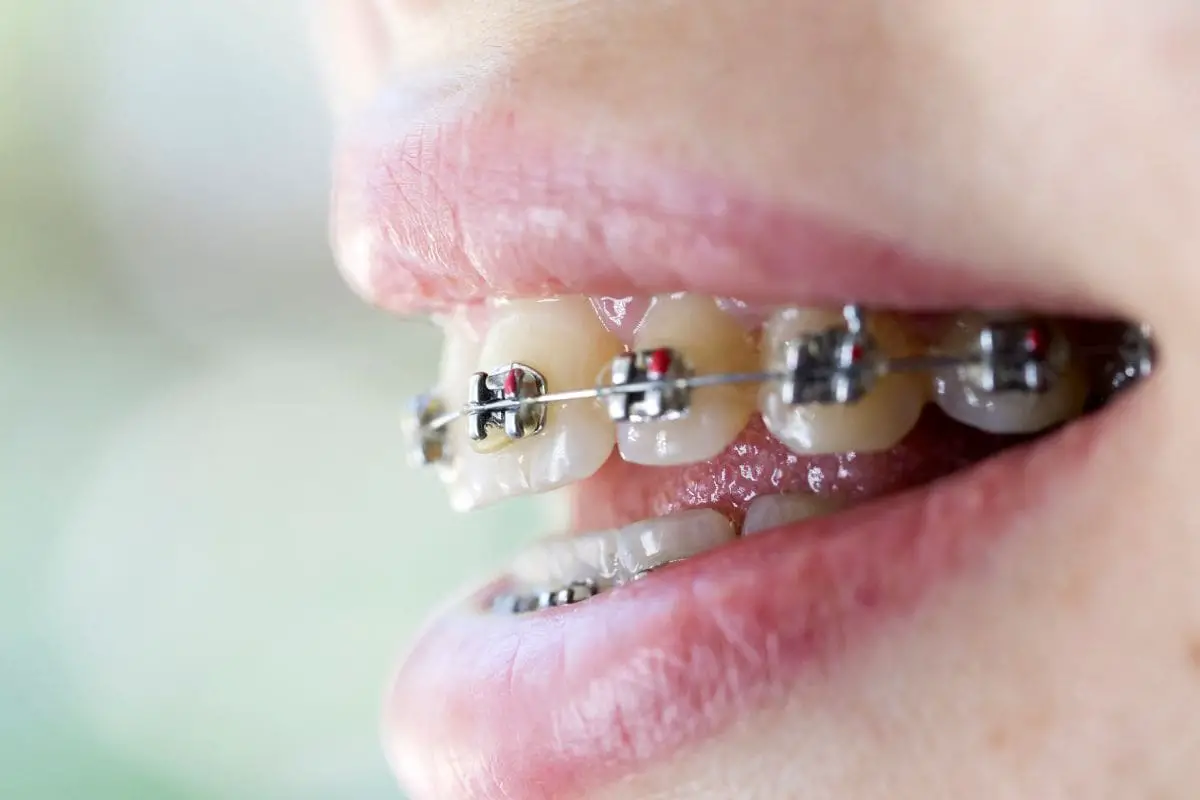




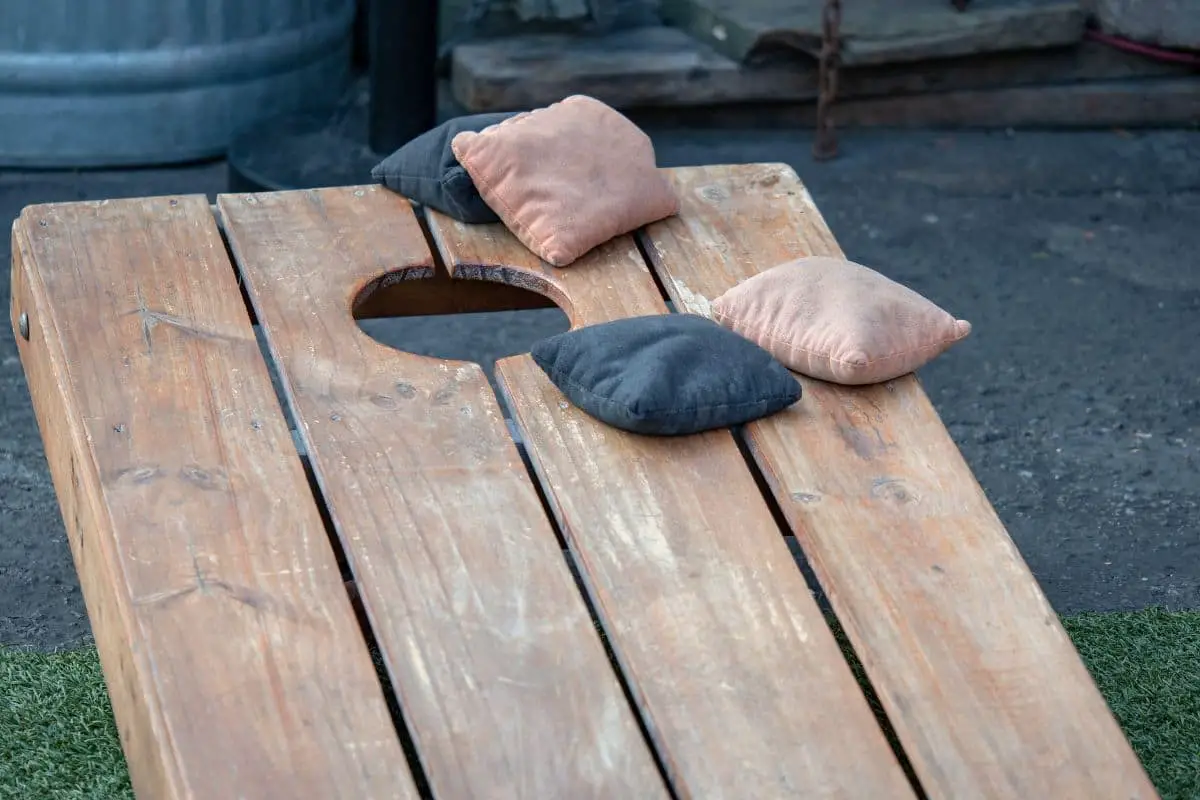
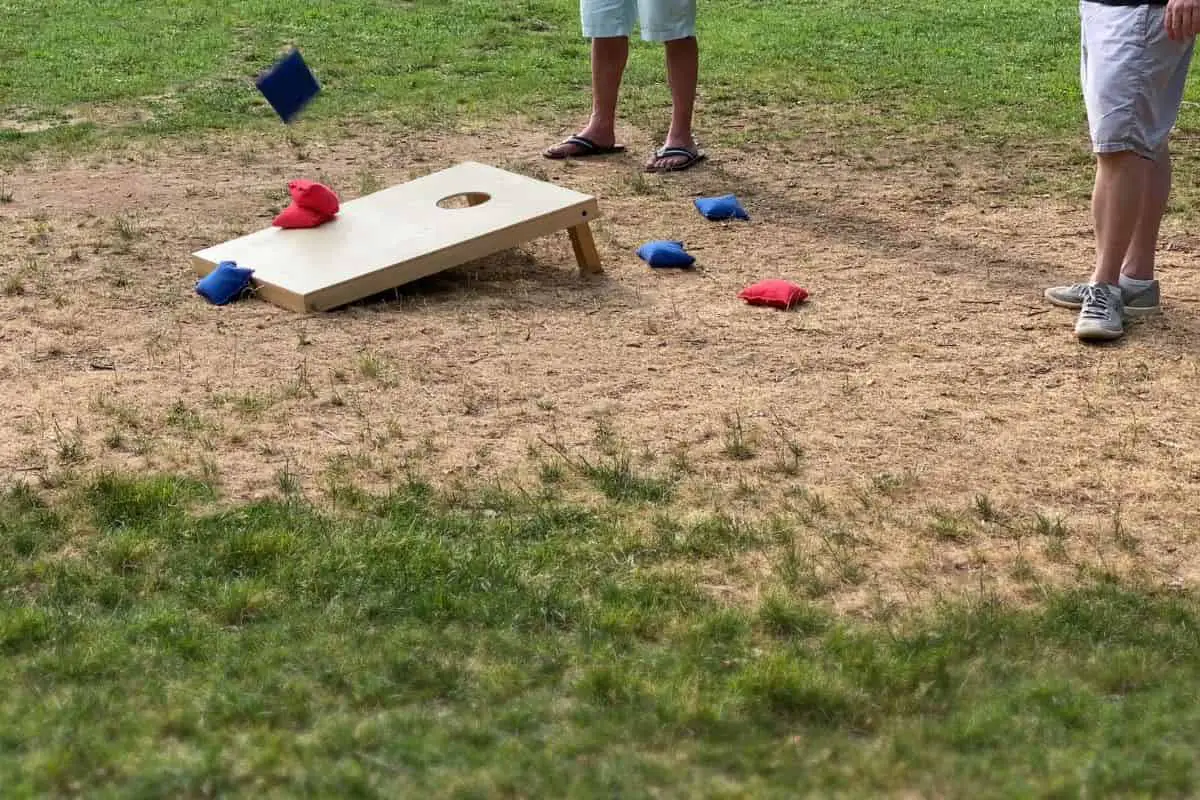
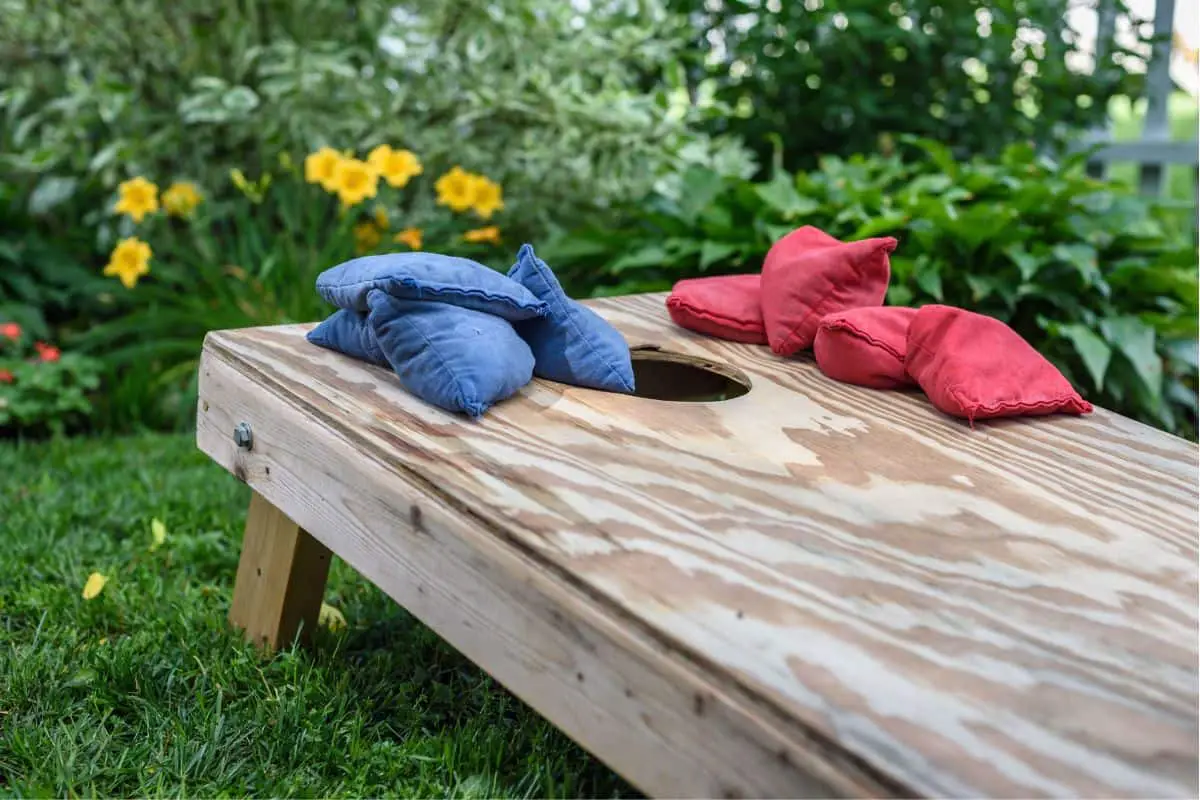
Leave a Reply